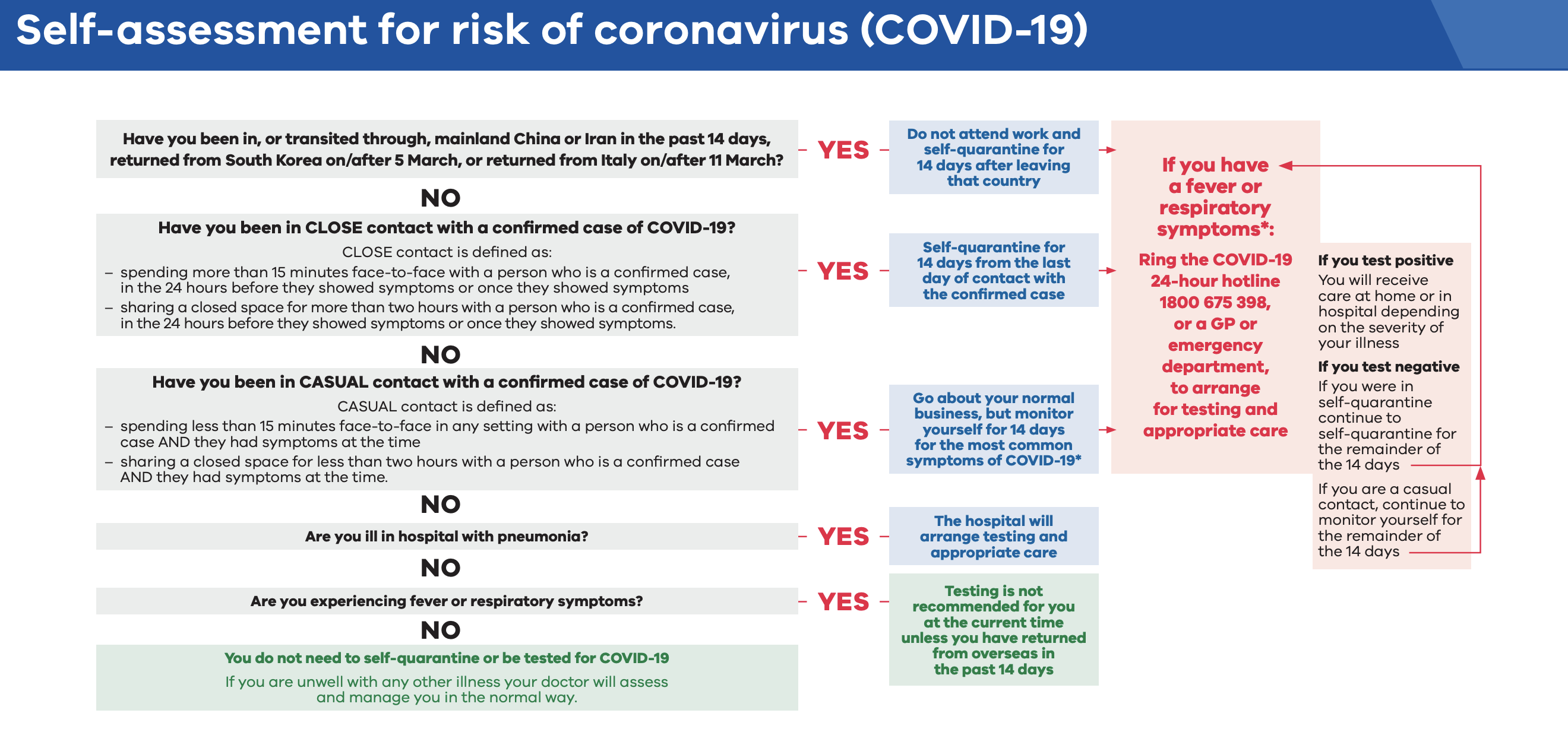How is COVID-19 diagnosed?
Your doctor (GP) or the medical staff at a hospital emergency department may take swabs from the back of your nose and throat, or fluid from your lungs, to diagnose your illness. Swabs and fluid are sent to public health laboratories for testing for COVID-19.
How is COVID-19 treated?
There is no specific treatment for people who have COVID-19. Confirmed cases will be isolated to help avoid spreading the disease to others.Early diagnosis and general supportive care are important. Most of the time, symptoms will go away on their own. People who have a serious infection, with complications such as pneumonia, can be cared for in hospital.
How long does a COVID-19 infection last?
The duration of a COVID-19 infection varies from person to person. If you are otherwise healthy, mild symptoms may go away after just a few days. If you have other health problems, such as a lung or heart condition, recovery may take weeks. In really severe cases, COVID-19 can be fatal.
How soon after infection do COVID-19 symptoms appear?
In most cases, it takes up to 14 days for symptoms to appear after a person has been infected with the coronavirus (COVID-19). The period is also known as the ‘incubation period’.
Can a person transmit the coronavirus to others before symptoms appear?
Yes, it appears transmission can take place at least 24 hours before any symptoms appear. It's still being investigated, but evidence suggests that a person can spread COVID-19 infection from about 1 day before they first develop symptoms, until up to 1 day after the symptoms stop.
For how long can a person spread the coronavirus to other people?
The length of time during which a person remains infectious (and can spread the COVID-19 infection to others) is not yet entirely known. However, some evidence suggests that a person can spread the infection from about a day before they first develop symptoms until up to one day after their symptoms are gone.
How long can the coronavirus that causes COVID-19 survive on surfaces?
It’s currently uncertain how long the virus that causes COVID-19 can survive on surfaces, but it seems to behave like other coronaviruses. This means it can survive on surfaces for a few hours or, under some circumstances, for up to several days. This could depend on which type of surface it is, or on the temperature or level of humidity of the environment.
If you think a surface may be infected, clean it with a common household disinfectant to kill the virus and protect yourself and others. Wash your hands with soap and water or clean them with an alcohol-based hand rub. Avoid touching your eyes, mouth and nose. |
Source : healthdirect.gov.au
You will be able to view live statistics of Coronavirus with interactive map on this page if you use a Desktop Computer.
|
|




